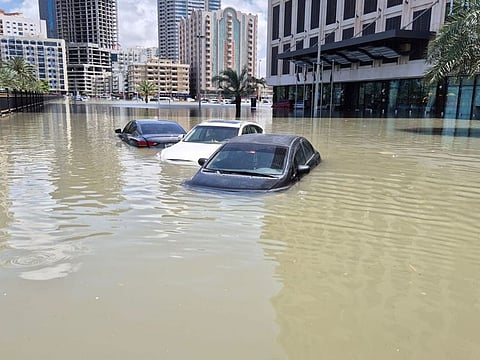Insurance: Comprehensive or third-party liability, what’s the difference?
Knowing the main difference is key to making a decision that works for you

“Comprehensive” insurance and “third-party liability” (TPL) insurance are two types of auto insurance coverage that offer different levels of protection.
What’s the difference?
In a nutshell, TPL is the cheaper of the two. It covers only the damages your car may cause to another vehicle.
Comprehensive car insurance, on the other hand, extends coverage to include damages to your own vehicle as well.
Insurance is a regulated industry. In most jurisdictions, a basic car insurance plan like TPL cover is mandatory, while opting for comprehensive insurance is optional.
Here's an axample of the price difference between comprehensive vs TPL insurance in the UAE for a typical vehicle. As of April 18, 2024, and depending on the insurer, indicative insurance rates for a Honda City EX 1.5L, 2017 Model, range from Dh1,092 to Dh1680 per year for a comprehensive insurance and Dh630 to Dh787.50 per year for a TPL.
Look closer at the fine print, and you will discover some of the major differences:
Comprehensive insurance
Third-party liability insurance
Important note
However, it’s important to note that cost is not the only difference between the two.
While a comprehensive insurance cover may initially require a higher investment, the broader scope of coverage it offers justifies the expense.
In addition to protecting your vehicle comprehensively, there are also long-term benefits.
Why are comprehensive car insurance plans more expensive?
Comprehensive insurance provides coverage for any eventuality affecting your car outside of accidents, including “acts of nature” or natural disasters (like floods, quakes, etc).
This coverage is usually paired with a collision policy that covers damages caused by accidents. Given its broader coverage, is comprehensive insurance worth the higher cost?
Why do many opt for third-party car insurance?
In a nutshell, it's more budget-friendly. Its pricing is also regulated, ensuring fairness for consumers based on the coverage provided. TPL insurance is often preferred as it offers the most basic coverage available in the market. Numerous insurers provide this option.
When does a TPL coverage make sense?
If you’re on a shoestring budget, own a vehicle of relatively low value, or if repair costs are affordable out of pocket, then taking out third-party car insurance makes sense.
TIP:
When taking out insurance, get quotes from multiple providers. This boosts your chances of finding an affordable policy.
In general, opting for comprehensive car insurance is advisable as it provides complete protection not only for other vehicles like third-party insurance does but also for damages to your vehicle and any injuries to the owner-driver.



